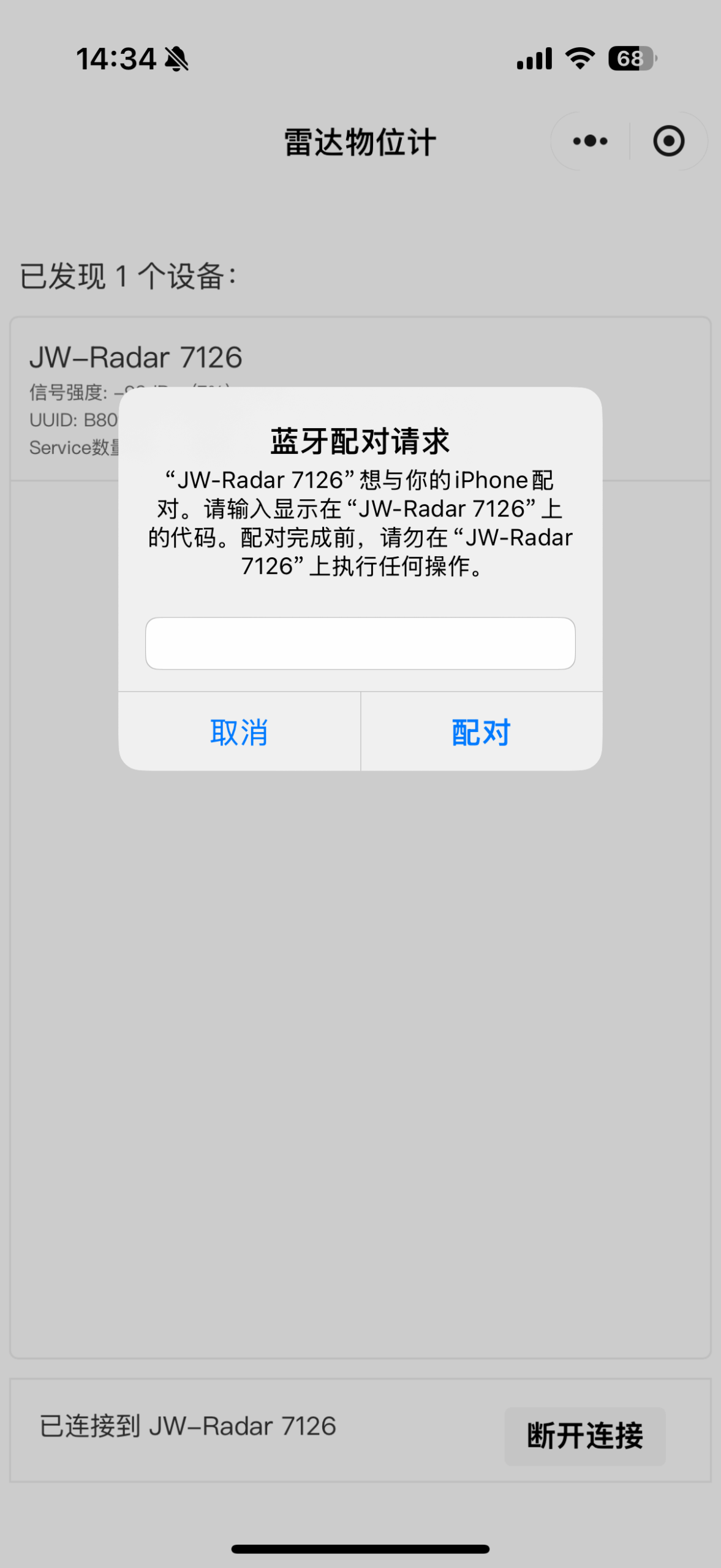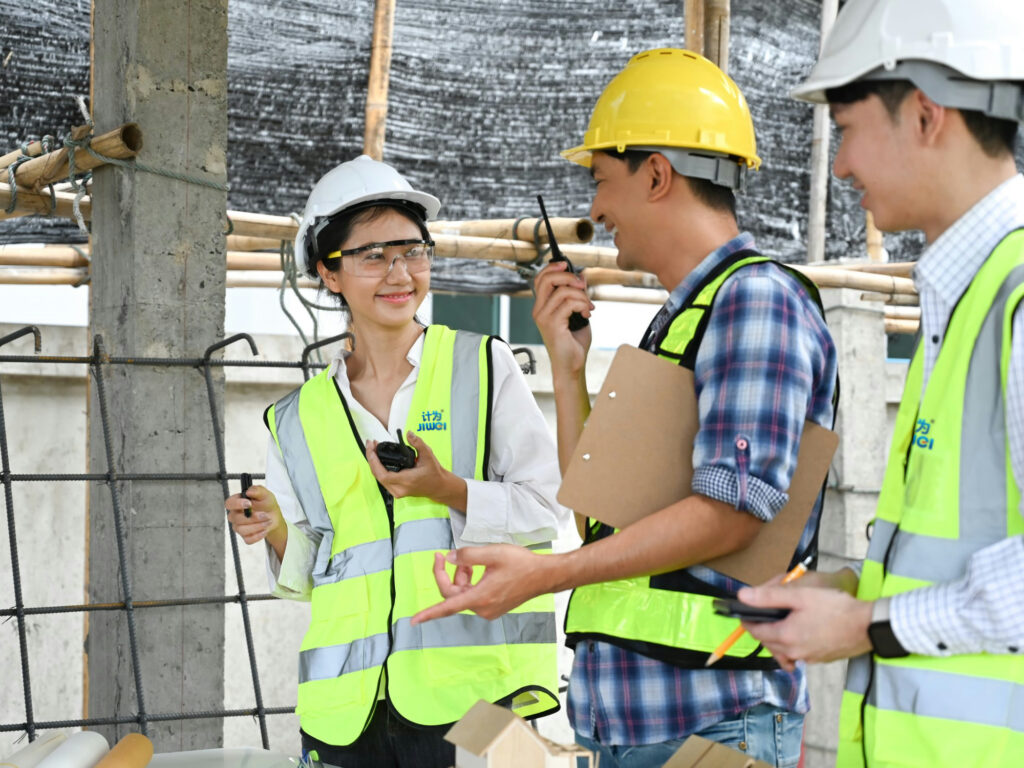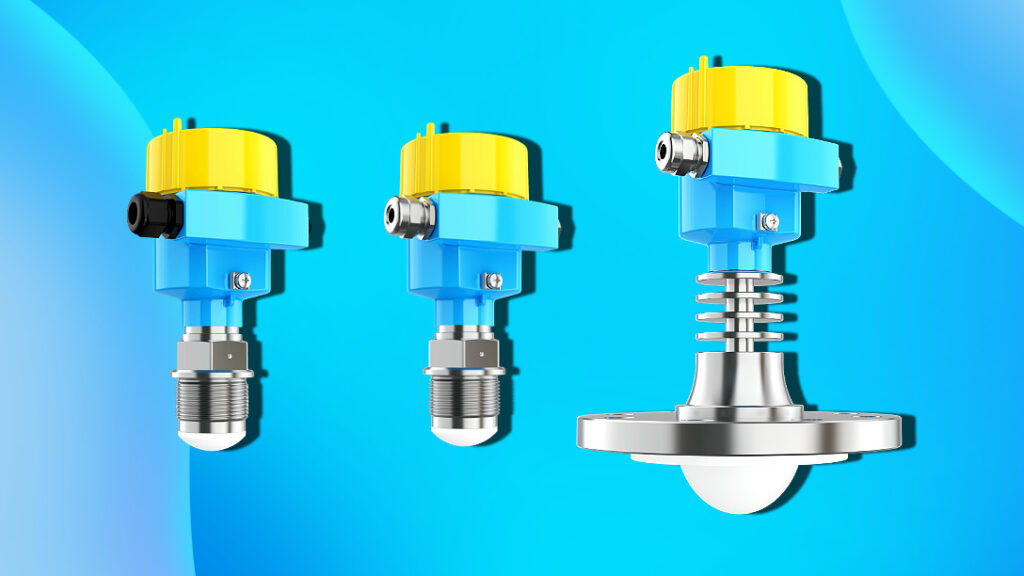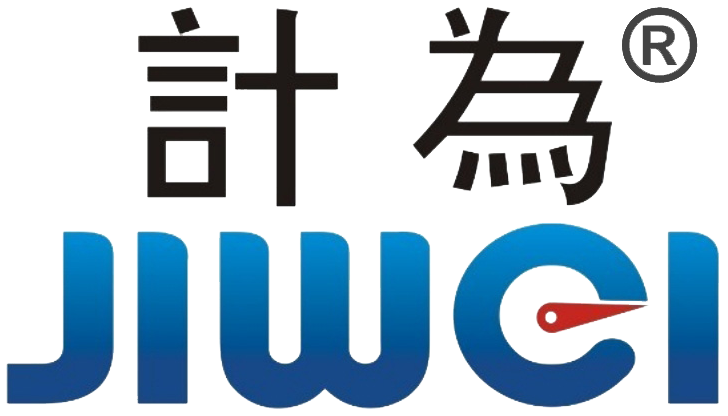Radar Level Transmitter Setup via Smartphone: A Field Log
Logged by: Li, Senior Technician at a Municipal Wastewater Treatment Facility
Date: June 2025
Location: Primary sedimentation tank, South China region
Device under test: Jiwei JWrada 80GHz Radar Level Transmitter
9:10 AM – First Impressions
After completing the mechanical installation of the radar level transmitter, our project manager told me, “No need to bring a laptop—just configure it via your phone.”
Honestly, I was skeptical. After years of commissioning level instruments, I’ve grown used to laptops, driver installations, USB-to-RS485 converters, and climbing access ladders. Using only a mobile phone? That sounded oversimplified.
He added, “Open WeChat, search for the ‘Jiwei Smart Control’ mini program, and you can connect via Bluetooth.”
Still doubtful, I pulled out my phone and gave it a try.
9:13 AM – Connection in Seconds
I launched WeChat, searched for the “Jiwei Smart Control” mini program, and entered the interface without needing to install any app.
It prompted me to enable Bluetooth. Standing about 3–4 meters from the device, I immediately saw JWrada_7126 appear on the list. I tapped “Connect” and was surprised to see the connection succeed instantly.
Within seconds, the interface showed the device model, range, blind zone, and real-time signal strength. The layout was clean and professional, with clearly categorized parameters.

9:15 AM – Real-Time Readings from the Field
This unit was mounted above a wastewater treatment basin, where the liquid level fluctuates due to inflow pulses and mechanical agitation. The basin has irregular geometry, and sludge accumulation near the walls makes signal reflection more complex.
Once connected, I could view live readings of the liquid level, waveform curves, and signal reflection quality directly on my phone.
The current level was around 1.5 meters, and the radar waveform displayed a clear and stable echo peak, with minimal noise. It was immediately apparent that the 80GHz JWrada radar handled interference from foam and agitation very well.
I set the measurement range to 5000 mm, adjusted the blind zone to 350 mm, and kept the unit in millimeters for easy correlation with engineering drawings. The entire configuration process was intuitive and transparent.

9:17 AM – Validating the Echo Curve
Next, I reviewed the live echo waveform. The mini program rendered the waveform in real time, allowing me to confirm the device was locking onto the correct liquid surface, not being misled by sludge buildup or turbulence.
The project manager looked over and asked, “Already done?”
“Yes,” I said. “Range and output settings are in. Signal is stable and readings are consistent.”
He raised his eyebrows. “That was fast.”
Indeed. What used to take 15–20 minutes per device—including opening the housing, wiring the interface, launching PC software—now took under 5 minutes with just a mobile phone.

9:20 AM – Parameter Export for Batch Setup
I saved the current parameter configuration and prepared to import it into the next basin’s transmitter. The ability to export and reuse settings is a game-changer when deploying multiple identical devices across a site.
Best of all, I never touched a single screw. I remained on the ground the entire time. In past projects, we’d climb ladders and open enclosures just to make basic changes. Now? Not necessary.
9:30 AM – Summary: Traditional vs Mobile-Based Commissioning
| Feature | Traditional Method | JWrada Mobile Setup |
|---|---|---|
| Required tools | Laptop, cable, drivers | Smartphone + Jiwei Smart Control Mini App |
| Physical access | Requires opening enclosure | Fully sealed during setup |
| Setup time | ~20 minutes per unit | ~5 minutes per unit |
| Field safety | High-risk (ladders, confined space) | Safer (ground-level wireless configuration) |
| Data visualization | Requires third-party software | Real-time waveforms on mobile |
| Data management | Manual recordkeeping | Export/import supported for batch setup |
Key Takeaways

This field test changed my perception of radar level transmitter setup. The Jiwei JWrada series, paired with the WeChat-based Jiwei Smart Control mini program, turns what was once a tedious, risk-prone task into a streamlined and safe operation.
For engineers in the field, especially those managing multiple units in wastewater treatment or chemical plants, Bluetooth configuration is no longer a convenience—it’s an essential upgrade. It dramatically improves commissioning speed, reduces maintenance risks, and enhances long-term system manageability.
📌 Pro Tips
- Search “Jiwei Smart Control” via WeChat for seamless access—no app installation required.
- Bluetooth communication is stable within a 10-meter radius, ideal for high-mounted or hazardous installations.
- All parameters are configurable via mobile, including range, blind zone, output mapping, and damping.
- Best used with JWrada 80GHz radar level transmitters, suitable for liquids, sludge, and solids across harsh industrial environments. radar level transmitters
radar level transmitter commissioning, Jiwei JWrada, Bluetooth level sensor setup, mobile radar level configuration, wastewater level monitoring, WeChat mini program for level sensors, real-time radar waveform display, industrial IoT level measurement

